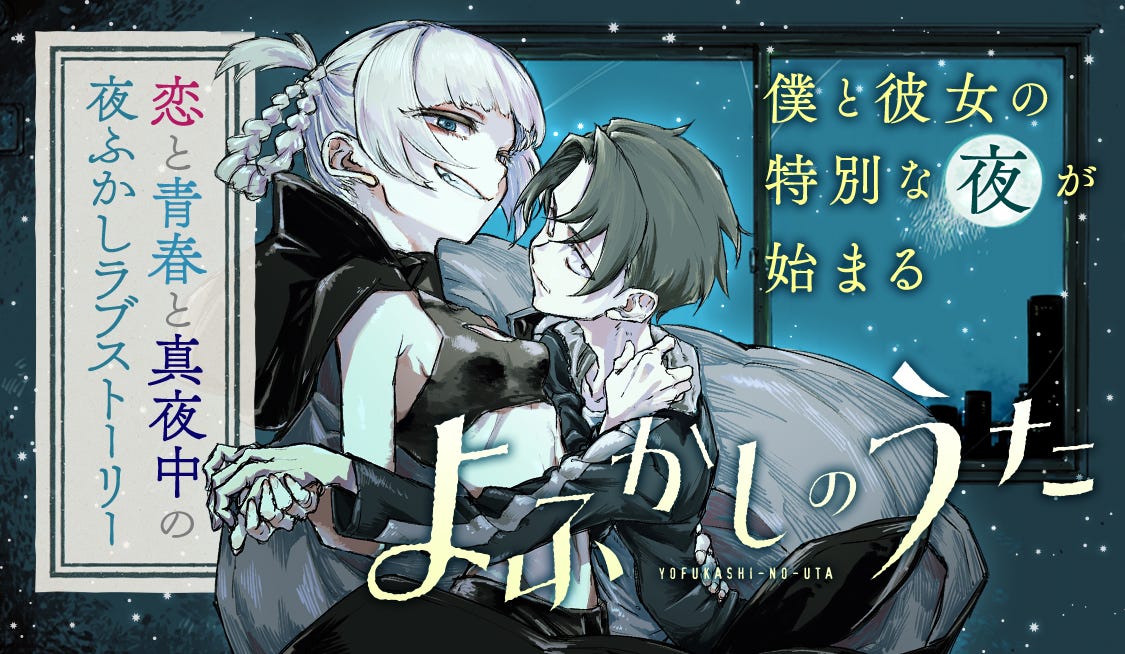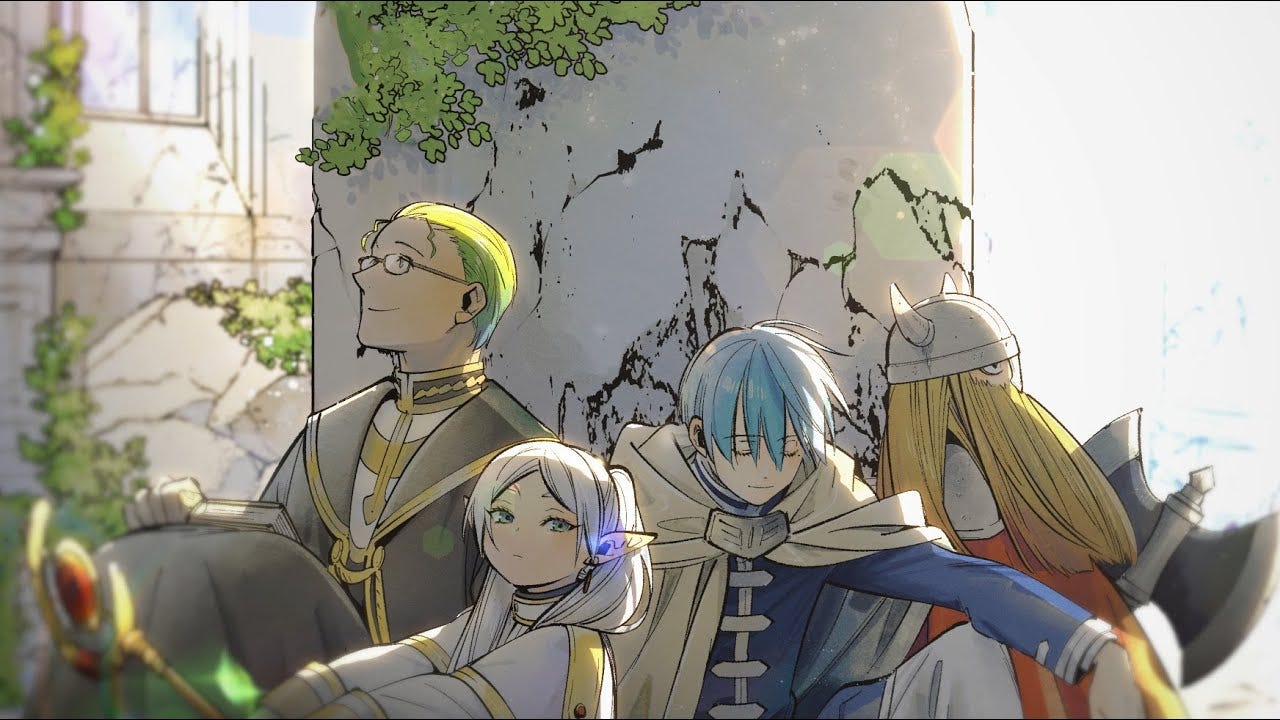The past month has been a lot—sightseeing, new job, new people, good food, ups and downs, more sightseeing. It's still too much for me to write anything of substance but I'm slowly tinkering with characters and plots again. In the meantime, some notes from the Land of Hello Kitty.
Something about Japan makes you want to consume Japanese media. A lot. I wonder why? Is it the glitzy cyberpunk atmosphere of Tokyo, my new home, or something else?
For example, I have been reading a lot more manga, watching a lot more anime, and playing a lot more videogames than I usually do (or did for the past handful of years). I suppose I get more exposure now, between billboards, ads, and being surrounded by gamers at work. Needless to say, my list of titles to check out has imploded.
I'm still more of a reader than a gamer though. And the rumours are true: 90% of people on Japanese trains pass the commute by staring at their phones (most seem to be reading manga or watching videos). The habit is contagious—my daily commute has become precious reading time.
If I can't write about what I've been experiencing, I can at least show a little glimpse into my life through four stories I've been enjoying. My Four Heavenly Kings1, if you will.
Call of the Night
Call of the Night (よふかしのうた) is an on-going manga series by Kotoyama about Yamori Kou, a 14-year-old boy who has no friends and stops attending school. Instead, he goes on night walks where he meets Nanakusa Nazuna, a vampire. In a weird turn of events, he decides he wants to become a vampire too but is informed by Nazuna that she can only change him if he falls in love with her.
I bought the first volume because the blurb compared it to Bakemonogatari, one of my favourite anime of all time. It lacks the long and witty monologues but makes up for it with depth in relationships, broken up by comedic moments. Through hanging out with Nazuna at night, Kou learns not only about vampirism but also about social interaction and friendship. I've always liked slice of life stories where nothing much happens but the characters discover a lot about the world and themselves.
Will Kou fall in love with Nazuna and be able to become a vampire, or will he realize that what he wants is actually something completely different? Are there other vampires out there, and if so, what are they like? I'm eager to find out.
Frieren
Written by Yamada Kanehito and illustrated by Abe Tsukasa, the fantasy series Frieren (葬送のフリーレン) starts with the elf mage protagonist saying goodbye to her fellow adventurers after they slew the demon king and brought peace to the world. This story is unconventional in that it starts at the end and focuses on what comes after: how Frieren, a long-lived elf, struggles with the fact that time passes differently for her vs. for her human companions and revisits places that worship them as heroes. When she realizes she didn't know all that much about her companions, she decides to learn more about humans and agrees to take on a human girl as apprentice.
Time is told in years after the death of her fellow hero Himmel. Was he more special to her than the others? Either way, it's interesting to see a manga that spans years, maybe even decades. The story seems to unfold in two directions at once: into the future but also into the past.
I wonder how Frieren and her apprentice Fern will change over time and what will be revealed in flashbacks.
The Apothecary Diaries
Based on a light novel series by Hyūga Natsu, The Apothecary Diaries (薬屋のひとりごと) starts with Maomao, a skilled apothecary, being kidnapped from her home and ending up in the imperial palace as food taster and accidental detective. Armed with her knowledge of poisons and the street smarts of a pleasure quarter native, she starts solving mysterious poisonings. This attracts the attention of Jinshi, the handsome eunuch in charge of the emperor's concubines—who is obviously not what he seems.
I love the comedic chemistry between Maomao and Jinshi but also Maomao's matter-of-fact, occasionally cynical personality shaped by the life she's lived so far. Devoid of the usual tropes, this story feels intelligent and refreshing.
The anime is a riot of vibrant colours too, I can't help but devour every new episode as soon as it is released!
Lonely Castle in the Mirror
Like Call of the Night, this novel is about kids not going to school. Is that enough to call it a social phenomenon?
Written by Mizuki Tsujimura and translated by Philip Gabriel, Lonely Castle in the Mirror (かがみの孤城) follows junior high school student Kokoro as she discovers a mysterious European-style castle beyond the mirror in her room. There she meets six other kids and the masked Wolf Queen who tells them the castle will grant one wish to the one who finds the key to the Wishing Room first.
This search for the key takes up a surprisingly small part of the book. Instead, we see Kokoro and the others slowly growing closer as each kid opens up about what keeps them from going to school. Everyone has their own story but they all share an understanding that school and the outside world is hard. It unites them and they become close friends, entering the castle day after day to see one another.
This is such a tender and heart-warming story about the difficulties of navigating a society that puts a lot of pressure on children, bullying, expectations and more. It came to me at exactly the right time and I'm anxious to know if and how Kokoro and the others will overcome their problems in the end.
The Secret Ingredient
I don't want to over-generalize but to me, Japanese media does have some hard-to-define unique flavour. Historically, Japan has been all but closed off from the outside world for over 200 years during the Edo period (1603-1868) and is still an incredibly homogenous society. You barely see any foreigners on the streets, even in an international capital such as Tokyo. Most of Japanese media has their own national ecosystem too, from publishing to music, with comparatively little exchange with the rest of the world.2
Is there a secret ingredient that makes Japan unique in the world? If you have any ideas, do submit them in the comments!
Surrounded by Japanese—both people and language—day in, day out naturally makes me want to immerse myself even more. Japanese reading material is both easily available and cheap.3 In fact, just the other day I scored two books and two manga at Book Off for a total of 1,800 yen (11 euro or 12 dollar).
Perhaps there will be more reviews from my long reading list in the future. Feel free to comment with recommendations too! If it's Japanese or about Japan, I will check it out.
And if you've missed it, I am still rereading Dune along with Alexander, Nathan, and Claudia, a fun project that you can join today. The spice must flow!
You might only know them as Elite Four from Pokemon but they are actually ubiquitous in Japanese videogames.
This is just a vague impression though, not very well-researched at all.
Unlike in Austria or Germany, where English books are usually cheaper than German ones.







Great to hear you're setting in OK and nice recap of reading material, what about the games, though? Which ones? And yes, keep that Spice flowing! 👍
Great reading your updates from Japan 🇯🇵 It seems like you’re having a good time. I read that Chinese read lots of serialized fiction novels online. Is it the same in Japan?